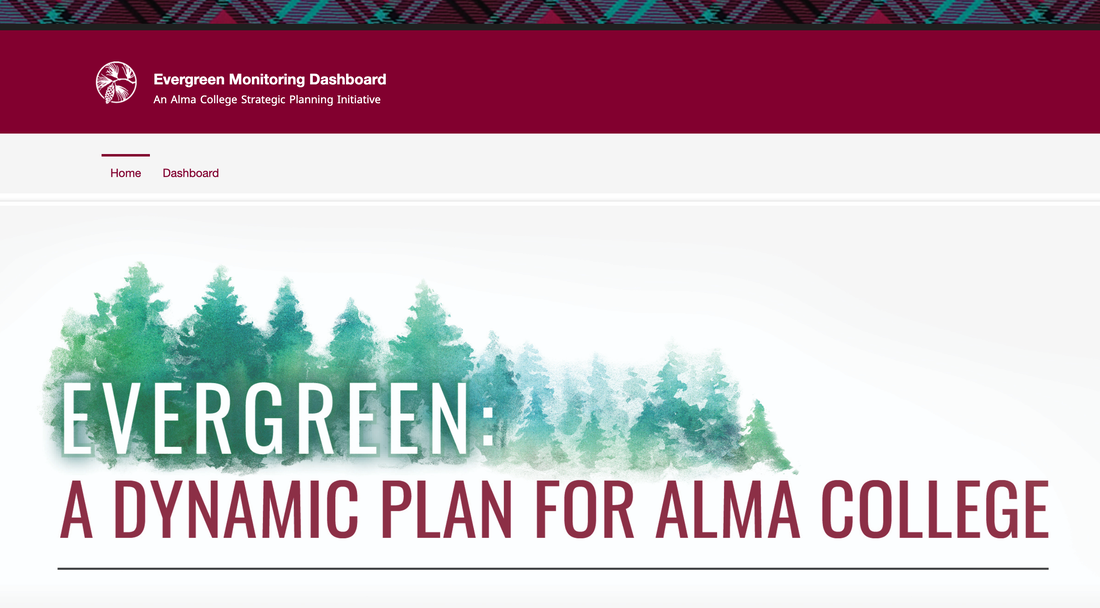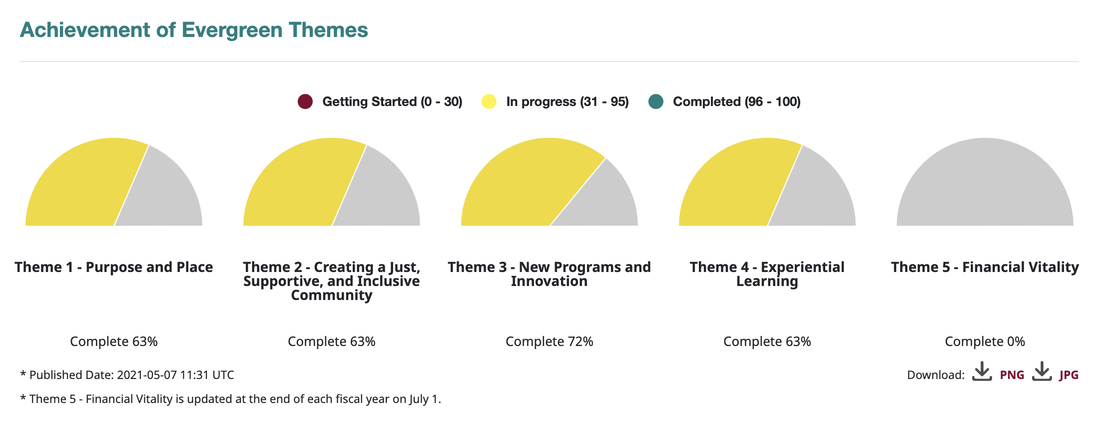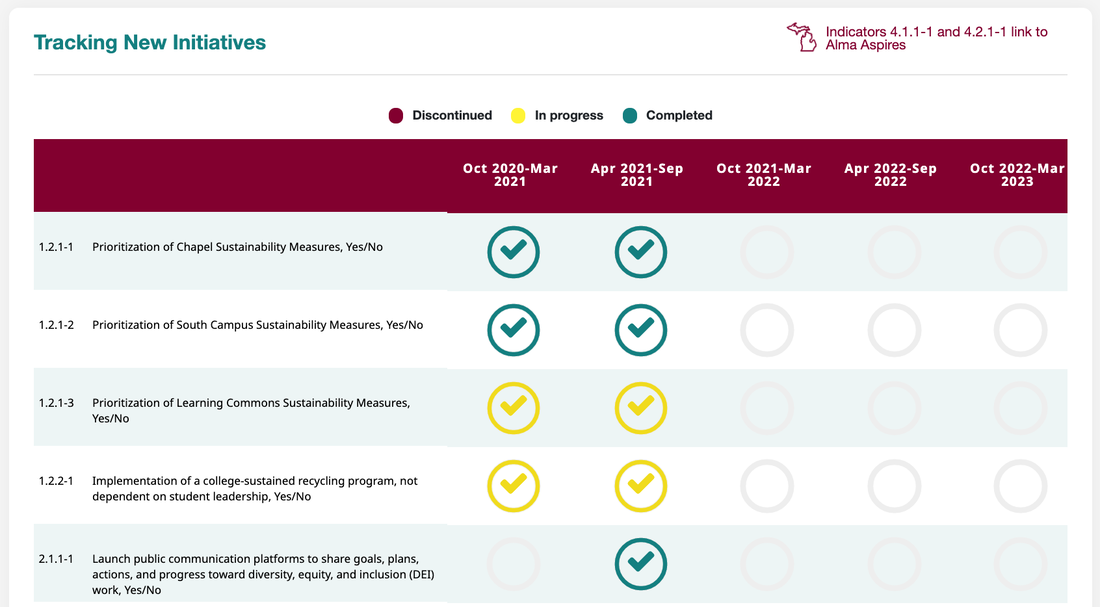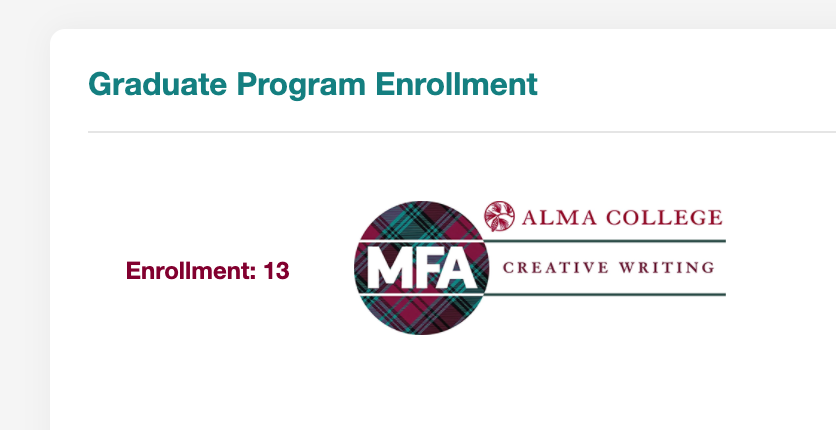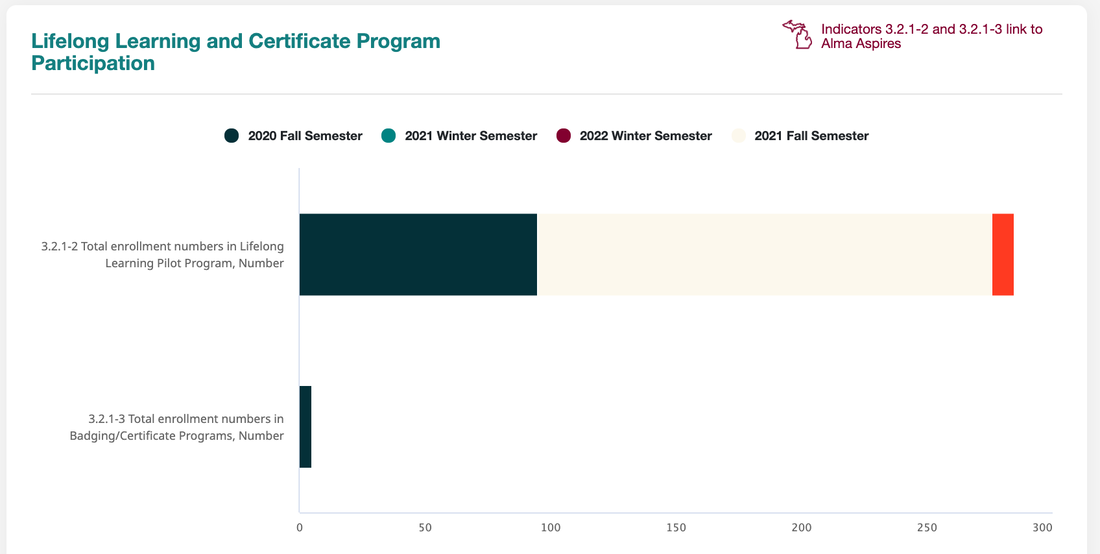Applying International Practices to Strengthen Strategic Planning and Monitoring in Higher Education19/5/2021 Seth Davis, Programme Advisor, Community Systems Foundation With growing uncertainties in higher education due to the COVID-19 Pandemic, academic planners and decision-makers around the United States are adopting innovative measures to be more efficient, collaborative, and transparent in their efforts to achieve institutional priorities. To support in overcoming these challenges, Community Systems Foundation has worked with Alma College to deploy a globally recognized results-based management tool called Data For All (DFA) Monitoring to track progress towards the goals of the Alma Evergreen Strategic Plan. Recognizing the dynamic nature of a truly ‘evergreen’ strategic plan, the administration at Alma College was eager to deploy a system to strengthen the execution of a plan is designed to continuously evolves and adapts to meet challenges and opportunities of the College. Prior to the adoption of DFA Monitoring at Alma, collaborative planning gave way to disjointed monitoring with fragmented and isolated datasets held by various departments across campus. The Presidential Advisory Council identified shortcomings in the operationalization of and reporting on the strategic plan, and with technical assistance from CSF, configured DFA Monitoring and the Evergreen Dashboard, as a tool to communicate and rally the college community around the strategic plan while providing continuous updates on immediate results. Presenting Evergreen Results The Evergreen dashboard is designed as a communication platform for the strategic plan, presenting 1) overall progress towards the achievement of the five Evergreen themes; 2) specific progress of key performance indicators; 3) campus and community contributions to the strategic plan; 4) status of new initiatives on campus; 5) enrollment in new graduate programs; and 6) participation in the new Lifelong Learning and Certificate and Badging programs. At the highest level, the Evergreen dashboard presents a view of overall progress against the achievement of the five Evergreen Themes: Purpose and Plan, Creating a Just, Supportive, and Inclusive Community, New Programs and Innovation, Experiential Learning, and Financial Vitality. At a glance, visitors are presented with an aggregate score of progress, based on the status of underlying key performance indicators associated with each theme. As demonstrated by the visualization above, it can be seen that Alma College has already made significant overall progress at the onset of the implementation phase (where data is available). The second visualization communicates the progress against specific indicators in the plan. This more nuanced view provides management with key real-time information to inform evidence-based decision-making and interventions on key priorities of the college. This view allows highlights where additional efforts may be required to ensure achievement of targets of the plan are realized. Below, it can be seen that from October 2020 to March 2021 ten students participated in an Alma-sponsored local internship. While the administration has a goal of 40 students participating in any given year, this demonstrates that there is already 25% achievement of this indicator before one year of the plan has elapsed. 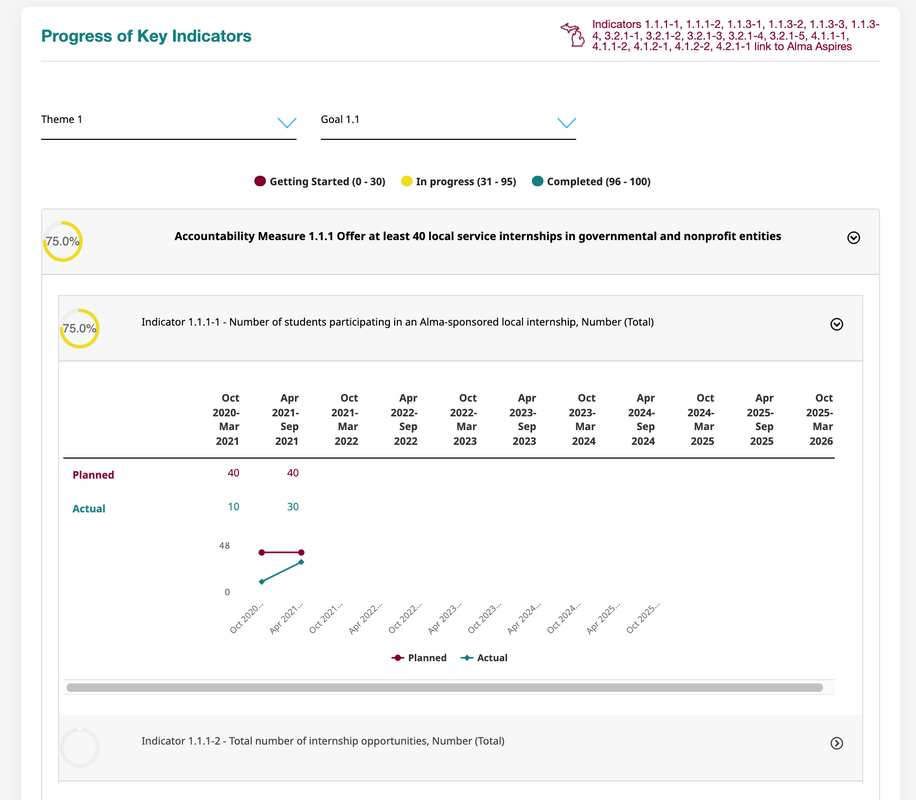 As with any strategic plan, the ambitious goals within the Evergreen Plan can only be realized with focussed input from the students, staff, and the broader Alma College community. DFA Monitoring is enabling Alma College to highlight the excellent work of the entire community towards the achievement of the plan. Currently, the administration is monitoring 96 Key Activities aligned with 15 Accountability Measures through the dashboard. As expected, the map below shows a high concentration of activities ongoing in specific departments across campus. But the Evergreen Plan engages beyond Alma’s campus, with contributions and engagement by local organizations, such as the Chamber of Commerce and the city governments in the greater mid-Michigan area. 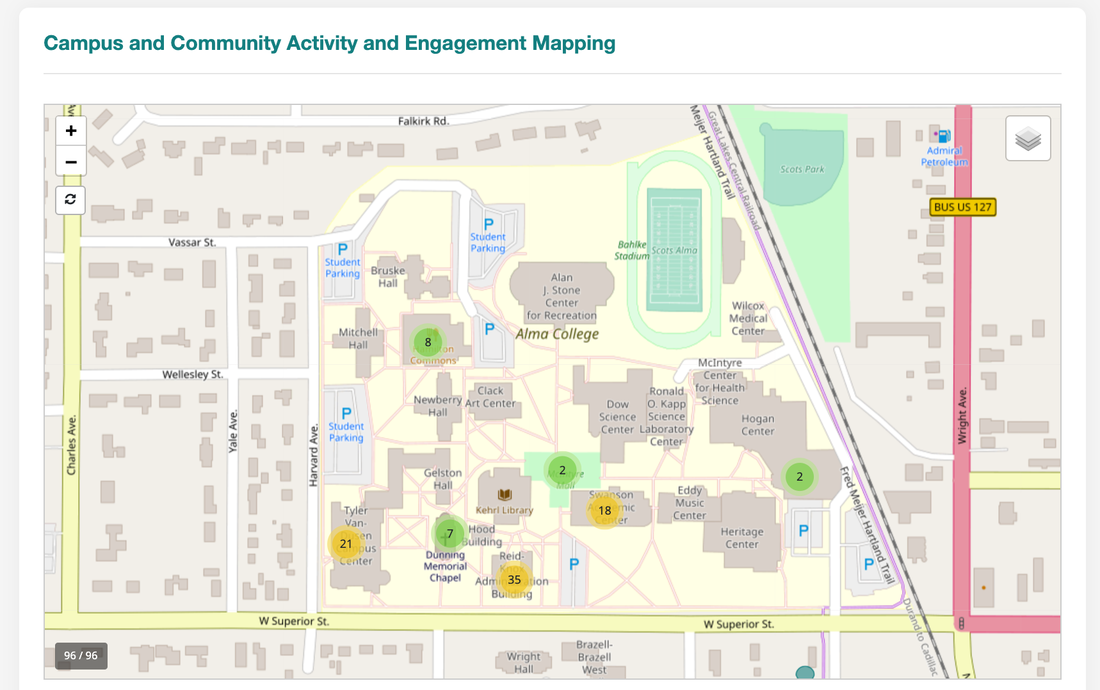 The example above is an initiative to undertake needs assessment of alumni and the local business community to gauge interest around continuing professional education and professional development. This activity is aligned with Accountability Measure 3.2.1 - Create and expand certificate and badging program offerings through the Lifelong Learning pilot. Directly, or indirectly, everything the college community does, should align with and contribute to the broad goals of the strategic plan. It is hoped that the Evergreen dashboard will encourage and inspire the community to take responsibility and action towards the development of Alma College. The second half of the dashboard presents the college’s commitment to growing in new areas and contributing to on-campus development. In the Tracking New Initiatives visualization, indicators from throughout the plan are highlighted to show if they are in progress, completed, or discontinued. This helps students, staff, and the broader community better understand the status of important initiatives like one-on-one mentioning and on-going professional development opportunities. From the dashboard it can be seen that the priorities for this indicator during the Winter 2021 Semester have been completed, whereas the activities related to the implementation of a college-sustainable recycling program are still in progress. Finally, the last two visualizations aim to capture enrollment and participation in areas of planned program growth at Alma College, including the current and future graduate programs, Lifelong Learning, and Certificate Programs. These show how the administration aims to provide new and engaging academic experiences for past, current, and future students. Conclusion DFA Monitoring has been deployed as an enterprise solution for the United Nations System (UN INFO) and by national governments around the world. Working with Alma College has provided CSF with a unique opportunity to apply these global best practices, while refining the results-based management system to meet common needs of higher education. At the inception of the initiative, CSF had several key assumptions: 1) higher education institutions would lack responsive systems to support processes to plan, monitor and report on the strategic priorities of the institution; and 2) institutions would lack mechanisms to effectively sustain the engagement of key stakeholders and to effectively use data to inform a continuous planning process. At Alma, these premises proved true. However, CSF is optimistic that Alma College, and like-institutions in the US and beyond can leverage globally recognized tools to fill a critical gap in the planning process, and afford for more accountable, transparent, and efficient monitoring of progress.
0 Comments
Leave a Reply. |
Join the CSF data revolution webinar tomorrow!
COMMUNITY SYSTEMS FOUNDATION – EST 1963
+1 212 500 1335
data-driven sustainable development

